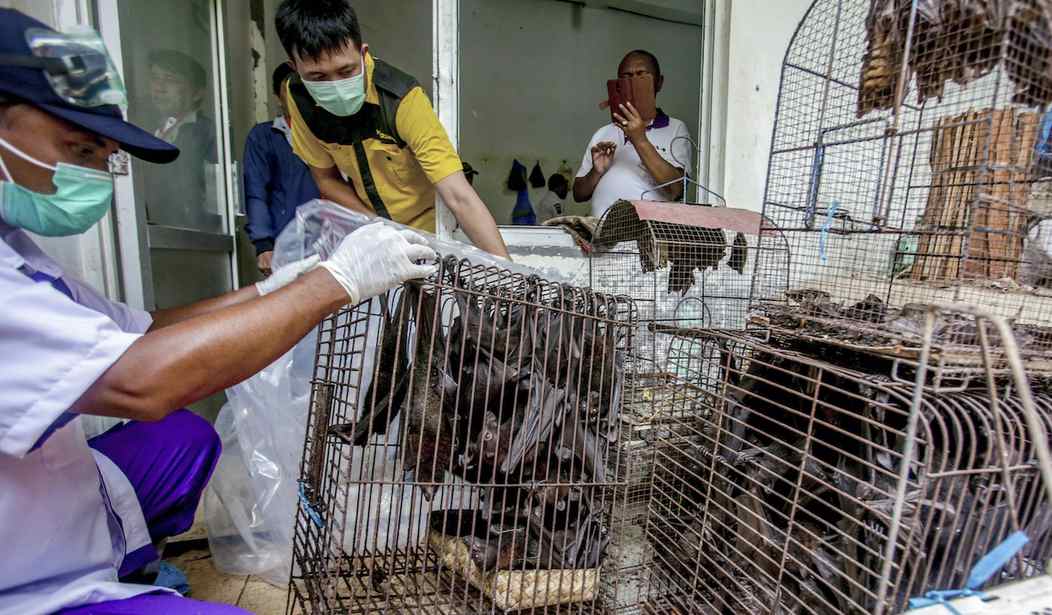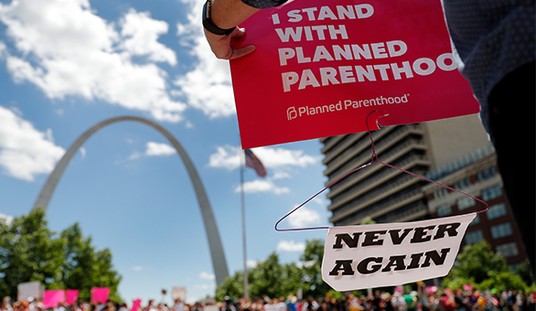Despite EcoHealth Alliance’s controversial research studying bat coronaviruses at the Wuhan Institute of Virology, possibly triggering the pandemic, the research firm has been awarded a new National Institutes of Health grant to examine "the potential for future bat coronavirus emergence" in Asia.
The new research was approved by the National Institute of Allergy and Infectious Diseases, led by Dr. Anthony Fauci, on Sept. 21, and will focus on Laos, Myanmar, and Vietnam.
"The overarching goal of our work is to analyze 11 the behavioral and environmental risk factors for spillover of novel CoVs, identify wildlife-to-human spillover 12 events, assess the risk and drivers of community transmission and spread, and test potential public health 13 interventions to disrupt spillover and spread," the study's abstract reads.
Additionally, the researchers aim to "rapidly supply viral sequences and isolates for use in vaccine and therapeutic development, including 'prototype pathogen' vaccines, via an existing MOU with the NIAID-CREID network. Our long-term goal is that this work will act as a model to build pandemic preparedness strategies to better predict sites and communities where wildlife-origin viruses are likely to emerge, and to disrupt emergence in EID hotspots around the world."
The grant gives EcoHealth Alliance $653,392, with a budget end date of Aug. 31, 2023, though the project is expected to run until Aug. 31, 2027.
EcoHealth provided some $600,000 in the form of NIH sub-grants to the Wuhan virology laboratory between 2014 and 2019 for research on bat coronaviruses. Last year, some members of the 17-agency U.S. Intelligence Community said that the virus may have originated near the Wuhan lab, according to a report released on behalf of President Joe Biden.
Fauci last year insisted that no gain-of-function research was taking place at the Wuhan lab using taxpayer funds. But a top NIH official said in a letter (pdf) last year that EcoHealth admitted that the grant to EcoHealth was used to infect mice with modified bat coronaviruses. (Epoch Times)
Recommended
Republican lawmakers have demanded that NIH investigate EcoHealth Alliance and its president, Peter Daszak, over its research at the Wuhan lab.
Critics are stunned that such a project would be funded.
“EcoHealth Alliance and Peter Daszak should not be getting a dime of taxpayer funds until they are completely transparent. Period. This is madness,” House Energy and Commerce Committee Republican Leader Cathy McMorris Rodgers said in a statement. “This further intensifies our extensive commitment on the Energy and Commerce Committee to ensure accountability from the National Institutes of Health for its role in supporting taxpayer-funded risky research without proper oversight of its grantees. The NIH must restore trust with the American people who deserve every assurance that research dollars are spent with the highest standards of integrity, transparency, and biosafety standards that meet the goal of preventing the next pandemic.”
UNBELIEVABLE: Fauci in his waning months as head of NIAID just greenlit a 600k grant to Peter Dzask and the Ecohealth Alliance for "bat coronavirus" research. The same organization that funded the Wuhan lab and research that plausibly lead to the entire COVID19 pandemic pic.twitter.com/BLOJE8xaY5
— Saagar Enjeti (@esaagar) October 2, 2022
This must be a joke. Please tell me this is a joke. @nih just gave @EcoHealthNYC and Peter Daszak a NEW grant for bat coronavirus research?
— Alex Berenson (@AlexBerenson) October 2, 2022
Including supplying “viral sequences and isolates for use in vaccine development”?
Nope. Not a joke.
The joke, apparently, is on us. pic.twitter.com/b4p2fORn0u
New NIAID award for EcoHealth Alliance to look for more novel coronaviruses in Southeast Asia.
— Alina Chan (@Ayjchan) October 2, 2022
Can they please tell us what new transparency & accountability measures have been put in place since the collaboration with the Wuhan Institute of Virology?https://t.co/67cfJyqoI7 pic.twitter.com/q7qfebyJvD
In response, Sen. Joni Ernst introduced legislation that would bar EcoHealth Alliance from receiving federal funds.
“Giving taxpayer money to EcoHealth to study pandemic prevention is like paying a suspected arsonist to conduct fire safety inspections. NIH got it right when it canceled the funding for the experiments EcoHealth Alliance was conducting with China’s state-run Wuhan Institute. In addition to violating multiple federal laws, EcoHealth has still not turned over documents about these dangerous studies that NIH has requested on multiple occasions that could offer vital clues to the origins of the COVID-19 pandemic,” the Iowa Republican told the Daily Caller.

























Join the conversation as a VIP Member